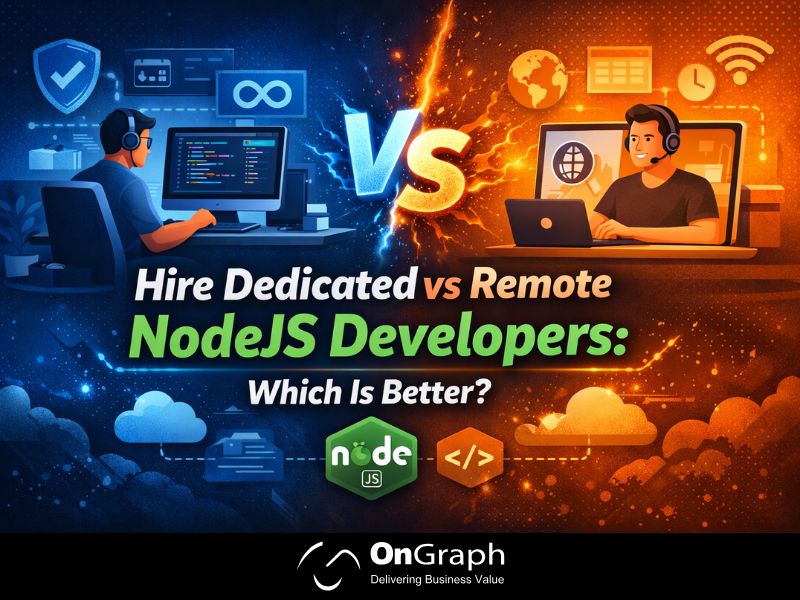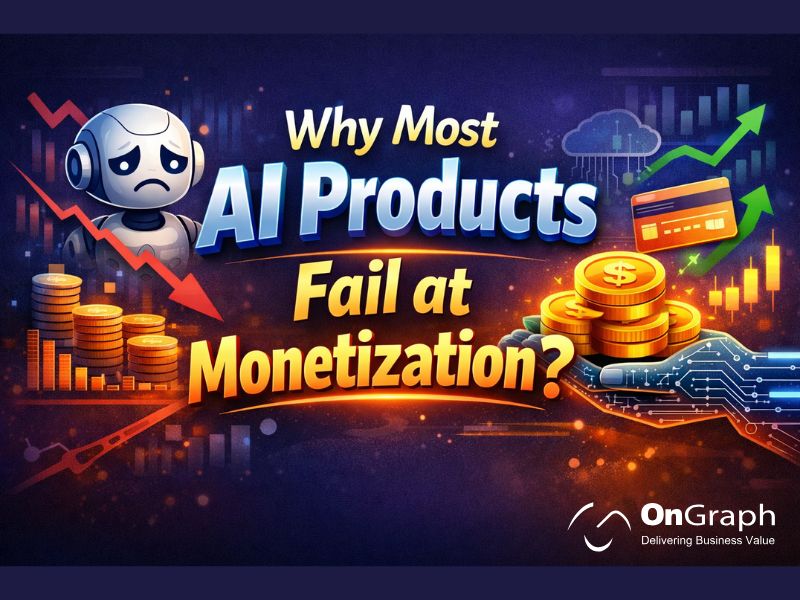In this article
- Why Build a Healthcare Market Research Platform?
- Case Study: Building a Research Platform for a Healthcare Startup
- Must-Have Features of a Healthcare Research Platform
- Tech Stack Recommendations
- Real-World Example: Integrating Lucid and Custom APIs
- Compliance Checklist for Healthcare SaaS Tools
- Market Demand: The Rise of Specialized Healthcare Research Firms
- Final Thoughts
- Ready to Build Your Healthcare Research Platform?
In today’s data-driven world, market research in healthcare is undergoing a transformation—powered by digital tools that enable real-time insights, faster decision-making, and improved patient outcomes. Whether you’re a startup founder or an established healthcare brand, building a robust healthcare market research platform can unlock significant strategic advantages.
This blog breaks down the essential features, compliance requirements, and tech stack needed to build such a platform, along with industry stats, case study insights, and real-world examples.
Why Build a Healthcare Market Research Platform?
The healthcare industry is expected to spend over $15 billion globally on market research by 2028, with rapid growth in pharmaceutical research, patient surveys, provider performance analysis, and payer feedback.
Traditional manual methods fall short in addressing modern demands—such as automation, fraud detection, HIPAA compliance, API integrations, and real-time reporting. This has opened a window of opportunity for businesses investing in healthcare SaaS development.
A purpose-built research platform helps stakeholders:
- Gather real-time patient, physician, or payer feedback
- Manage complex surveys and panels
- Automate project workflows
- Ensure secure and compliant data processing
- Streamline vendor and respondent management
Case Study: Building a Research Platform for a Healthcare Startup
Recently, OnGraph Technologies engaged with client, an entrepreneur launching a new healthcare market research company. Coming from a non-technical background, Ishwinder needed an all-in-one platform that handled project workflows, vendor management, survey creation, fraud detection, and reporting.
Our team demonstrated a modular platform with:
- Employee onboarding
- Supplier/client management
- Bid creation & project setup
- API integrations with Lucid & Pure Spectrum
- Real-time fraud detection (Research Defender)
- Security on AWS with role-based access
The outcome? Ishwinder was able to envision a scalable solution with built-in survey capabilities and compliance measures—tailored specifically for the healthcare domain.
Must-Have Features of a Healthcare Research Platform
To deliver true value, your platform should offer the following key capabilities:
1. Project & Vendor Management
Create, assign, and monitor multiple projects. Allow for client and supplier onboarding, bid creation, and dynamic or static redirect handling. This makes it easy to manage survey fulfillment pipelines, especially for growing healthcare market research firms.
2. Advanced Survey Creation Tools
Offer a drag-and-drop interface to build custom surveys with branching logic, multilingual support, and dynamic targeting. Most successful healthcare survey software also enables question libraries and reusable templates.
3. Prescreeners and Nested Quotas
Healthcare surveys often require targeting based on strict demographics, health conditions, or payer types. Custom prescreeners and nested quotas help you screen respondents precisely—reducing cost and boosting data quality.
4. Fraud Detection & Bot Filtering
Use third-party services like Research Defender or Forsta to identify bots, VPNs, and fraudulent traffic. These integrations are critical to maintain data integrity in modern market research platforms.
5. HIPAA-Compliant Tools and Data Security
Security is non-negotiable in healthcare. Ensure that all data—particularly PHI (Protected Health Information)—is encrypted in transit and at rest. Using HIPAA-compliant tools ensures your platform meets U.S. healthcare regulations and builds trust with enterprise clients.
6. Third-Party Integrations
Enable seamless integrations with demand-side platforms (DSPs) like Lucid, Pure Spectrum, Cint, or Dynata. These integrations allow your users to buy traffic and manage panel sources within the same interface.
7. Real-Time Reporting and Exportable Dashboards
Offer customizable reporting dashboards with live project statistics, quota fulfillment rates, and downloadable CSV reports. For agencies and enterprise users, branded reporting and white-label exports can add extra value.
Tech Stack Recommendations
Here’s a reliable and scalable tech stack to consider:
| Layer | Suggested Tools |
| Frontend | React.js, Vue.js, TailwindCSS |
| Backend | Node.js, Django, Laravel |
| Database | PostgreSQL, MongoDB |
| Hosting | AWS (EC2, S3, RDS, Lambda) |
| Security | SSL/TLS, JWT auth, AWS KMS for encryption |
| Fraud Detection | Research Defender, Forsta, MaxMind |
| Survey Engine | Custom-built with React or third-party APIs |
| Compliance | HIPAA, ISO 27001, GDPR standards built-in |
This tech stack enables fast development while meeting the compliance, scalability, and performance demands of healthcare market research agencies.
Real-World Example: Integrating Lucid and Custom APIs
Suppose you want to integrate Lucid for buying survey traffic and use your own fraud screening API. The platform should support:
- API key and token-based authentication
- Survey-level targeting via URL parameters
- PID uniqueness tracking and redirect logic
- Survey setup with custom quotas
This flexibility is what separates generic tools from those tailored for healthcare industry market research.
Compliance Checklist for Healthcare SaaS Tools
Building a platform for healthcare research means adhering to strict guidelines. Here’s a quick checklist:
- HIPAA compliance for handling any patient-identifiable data
- End-to-end encryption (AES-256, SSL)
- Role-based access control
- Audit trails for survey and respondent actions
- AWS-based secure infrastructure
If you’re planning to build medical research software, aligning with compliance early reduces risk and accelerates enterprise adoption.
Market Demand: The Rise of Specialized Healthcare Research Firms
As of 2024, over 64% of pharma and biotech companies outsource research studies to specialized agencies. This has given rise to highly focused healthcare market research companies building their own in-house tech or partnering with vendors like OnGraph for Market Searchch Software Development.
These platforms must offer customization, integrations, and regulatory assurance—which off-the-shelf tools rarely provide.
Also read- 9 Best Market Research Tools and Software in 2025
Final Thoughts
Whether you’re an entrepreneur like Ishwinder or a leader in an existing agency, launching a dedicated healthcare market research platform can give you a competitive edge in a growing industry. By combining powerful survey tools, vendor automation, fraud protection, and HIPAA-compliant infrastructure, you position your platform for long-term success.
If you’re looking for a partner to help design and develop such a system, OnGraph brings 15+ years of domain experience in building tailored healthcare SaaS development solutions.
Ready to Build Your Healthcare Research Platform?
Reach out to OnGraph for a free consultation or a live demo. Let’s turn your vision into a scalable, secure, and feature-rich platform that delivers results.
FAQs
A healthcare market research platform is a specialized software system that enables healthcare organizations, pharma companies, and research agencies to collect, analyze, and report data from surveys, patient interviews, and provider feedback. It supports features like project management, vendor coordination, fraud detection, and secure survey deployment—typically compliant with HIPAA and other healthcare regulations.
General tools often lack healthcare-specific capabilities such as secure PHI handling, compliance with HIPAA, patient pre-screening, and fraud detection for panel data. A custom healthcare market research platform allows for tailored workflows, integrations with survey networks like Lucid or Pure Spectrum, and controls over quotas, targeting, and redirect logic—critical for accurate and ethical healthcare data collection.
Key features include:
- Project and vendor management
- Survey builder with skip logic and quotas
- Fraud detection integration (e.g., Research Defender)
- API connectivity with platforms like Lucid
- Role-based access controls
- Real-time reporting dashboards
Compliance tools for HIPAA/GDPR
Yes. If the platform collects or stores Protected Health Information (PHI), it must be HIPAA-compliant. This includes encryption, access logs, role-based permissions, and secure AWS deployment. HIPAA-compliant tools help ensure your platform can legally work with U.S. healthcare entities and maintain data security and privacy.
Integrating with traffic providers like Lucid or Pure Spectrum enables you to buy respondent traffic directly from within the platform. You can set survey targeting criteria, redirect logic, quotas, and fraud detection settings without switching tools—greatly streamlining operations for healthcare market research agencies.
Yes. Many platforms, including the one demonstrated to client, are designed with a user-friendly dashboard and admin controls. Non-technical founders can manage suppliers, view reports, set up surveys, and onboard employees with ease—without writing code or handling backend configurations.
Costs can vary based on feature complexity and integrations. A basic MVP may start at $25,000–$40,000, while enterprise-level platforms with fraud detection, HIPAA compliance, and Lucid integrations may range from $60,000 to $150,000+. Ongoing support and cloud hosting costs are additional.
About the Author
Let’s Create Something Great Together!
Latest Blog
















